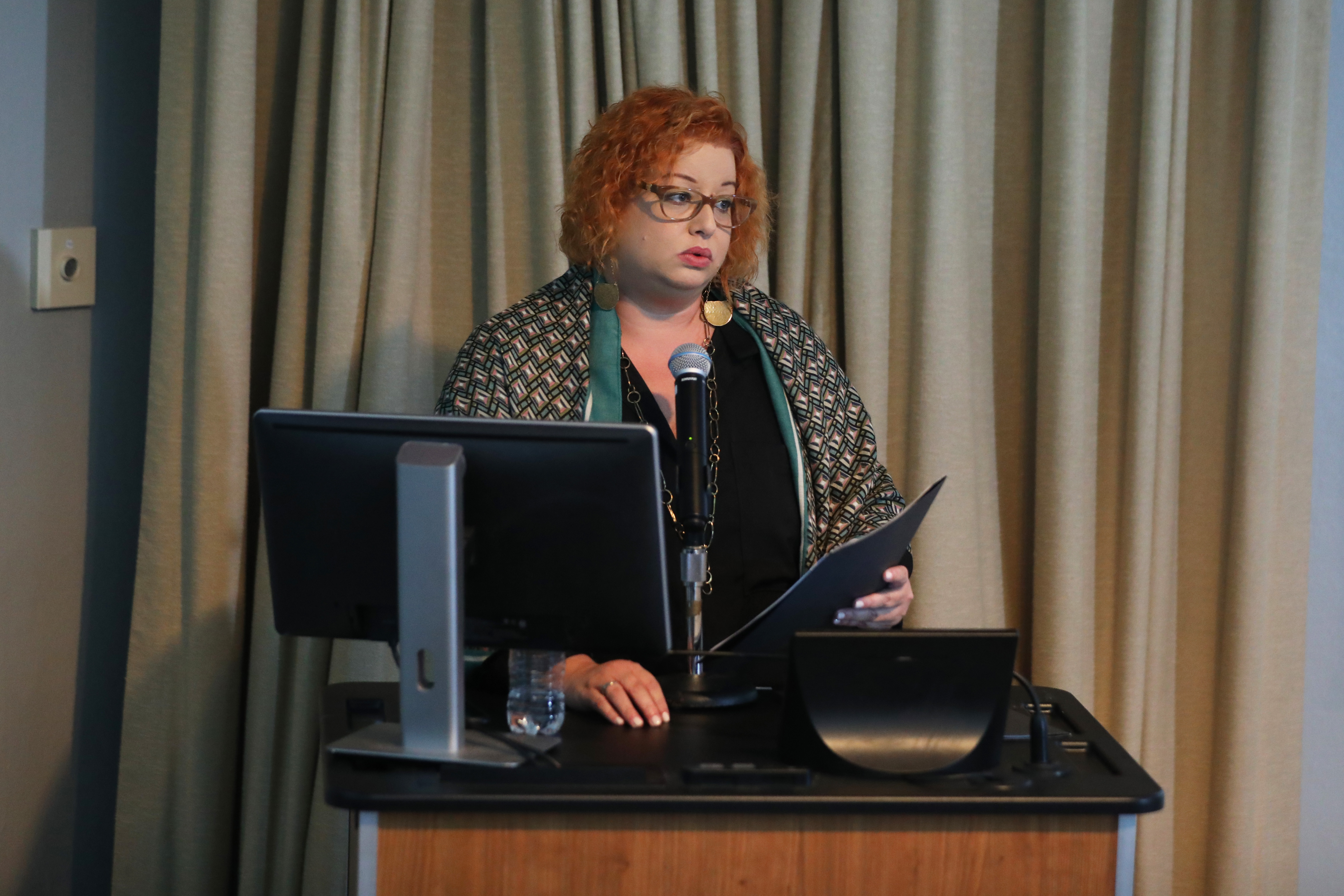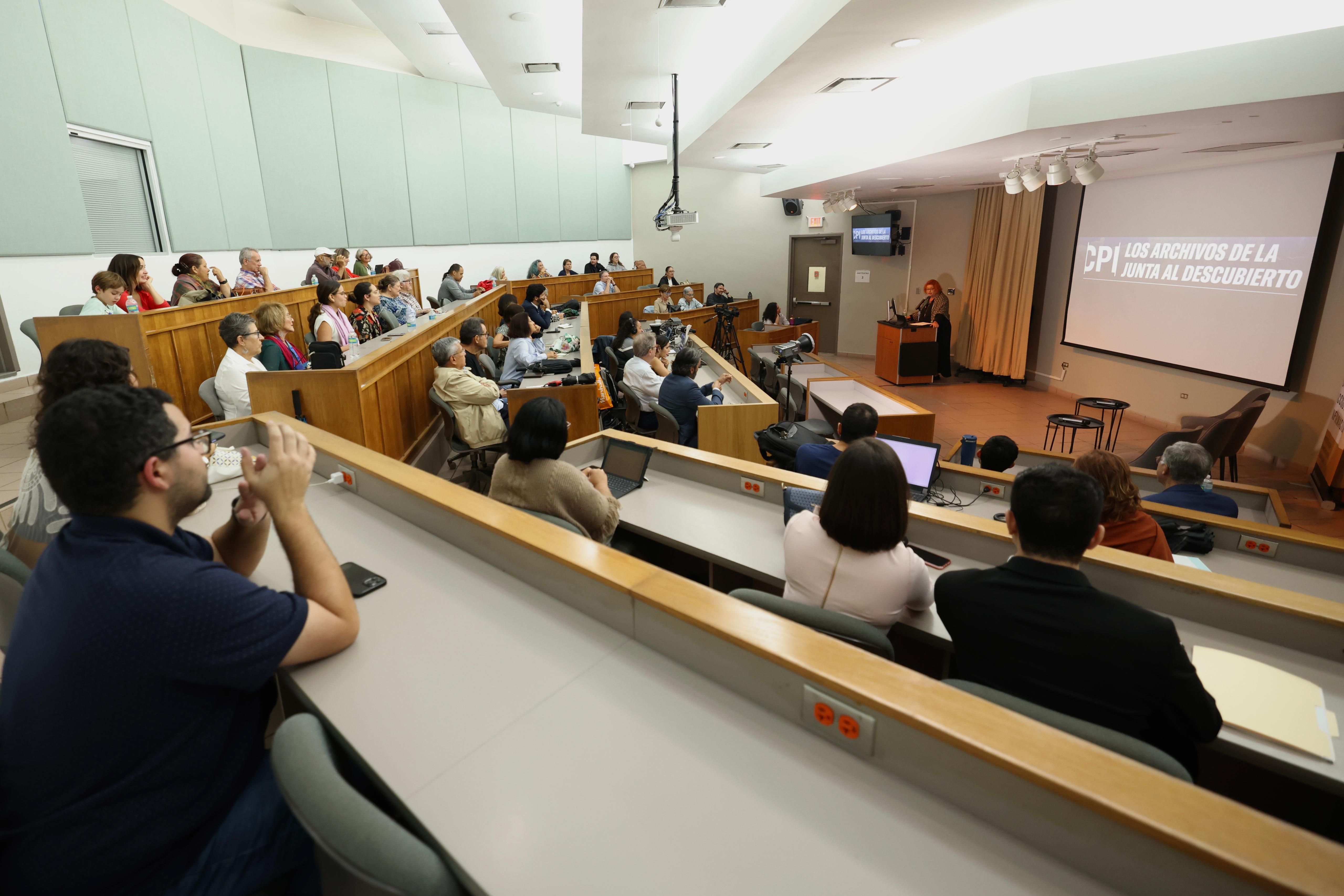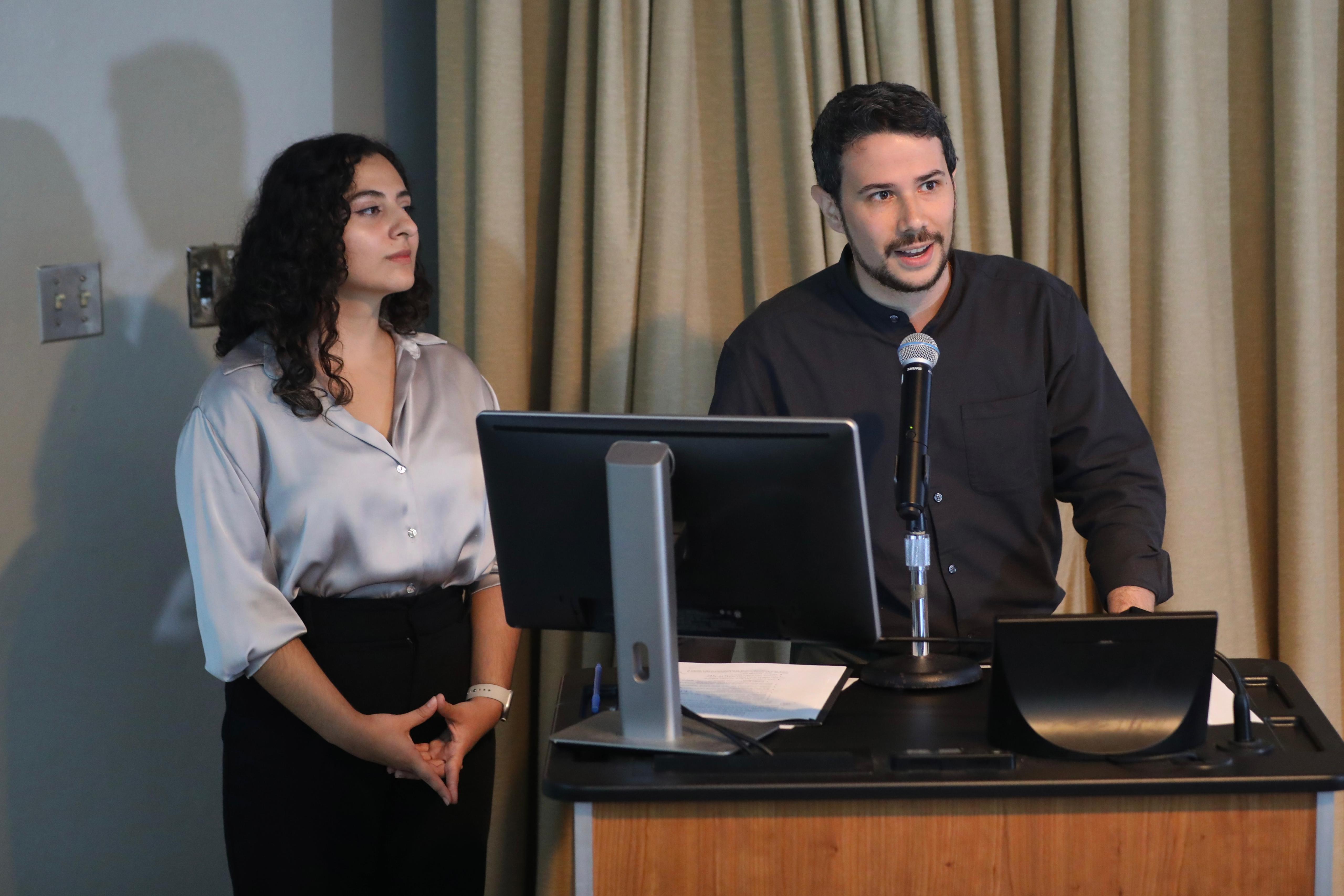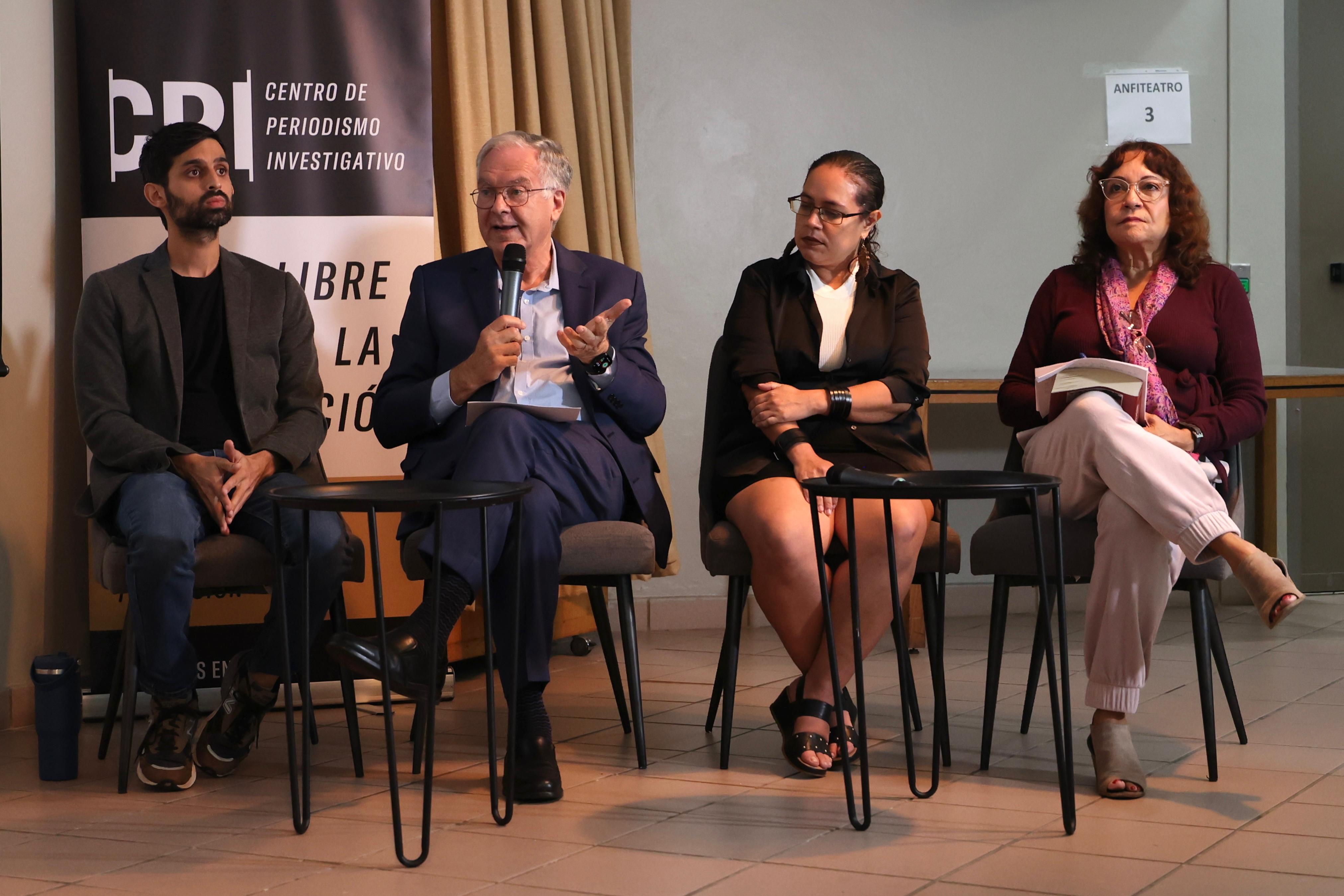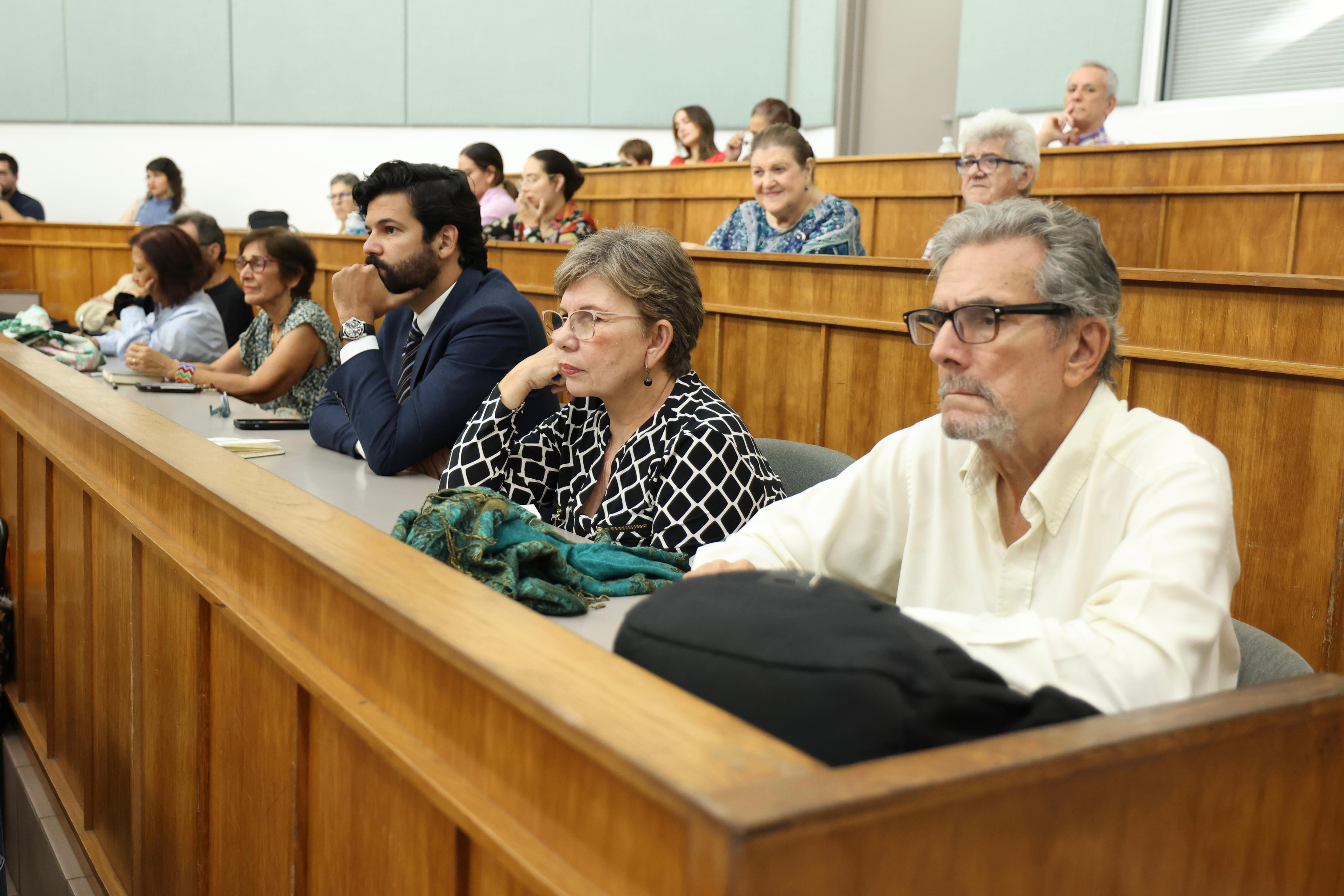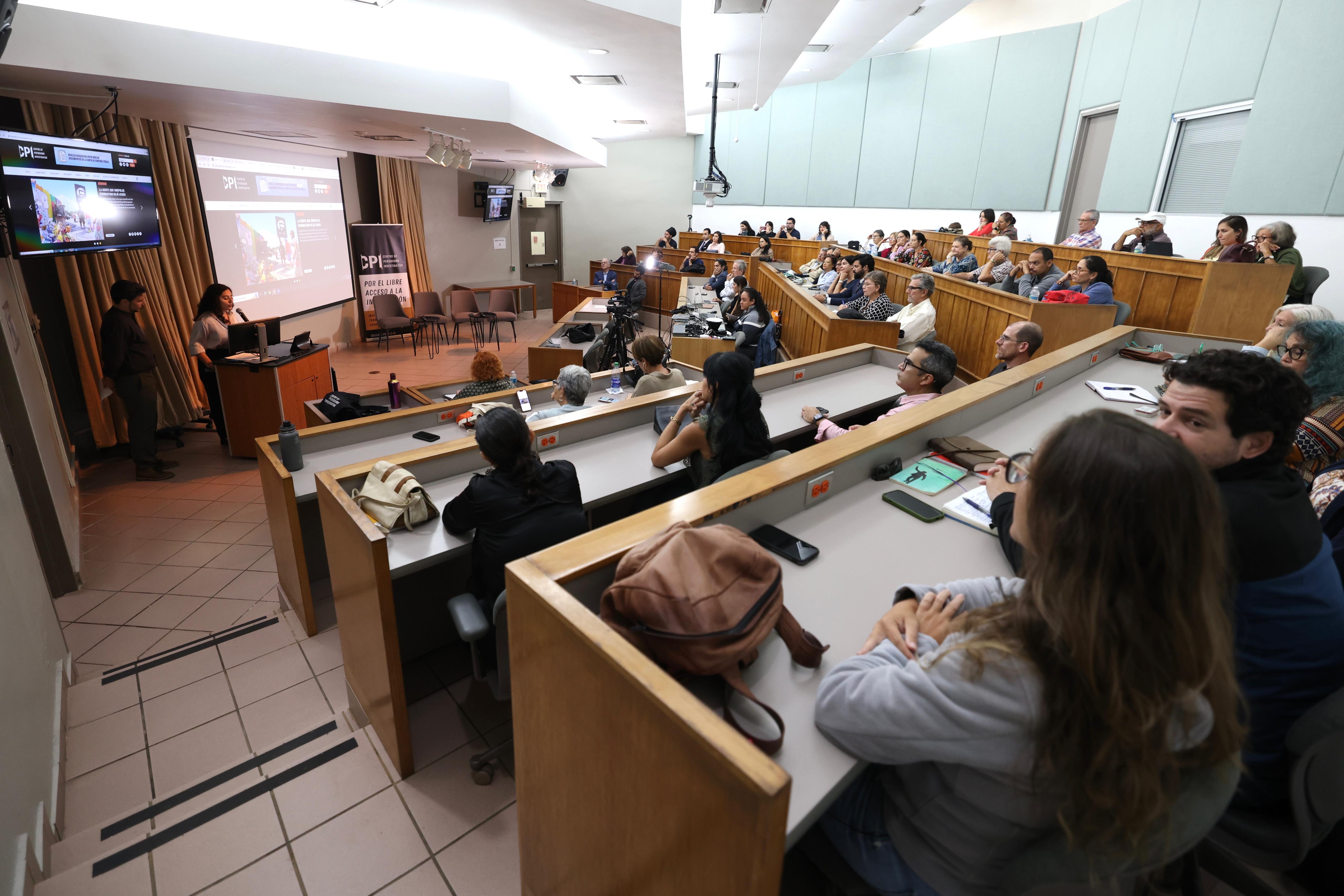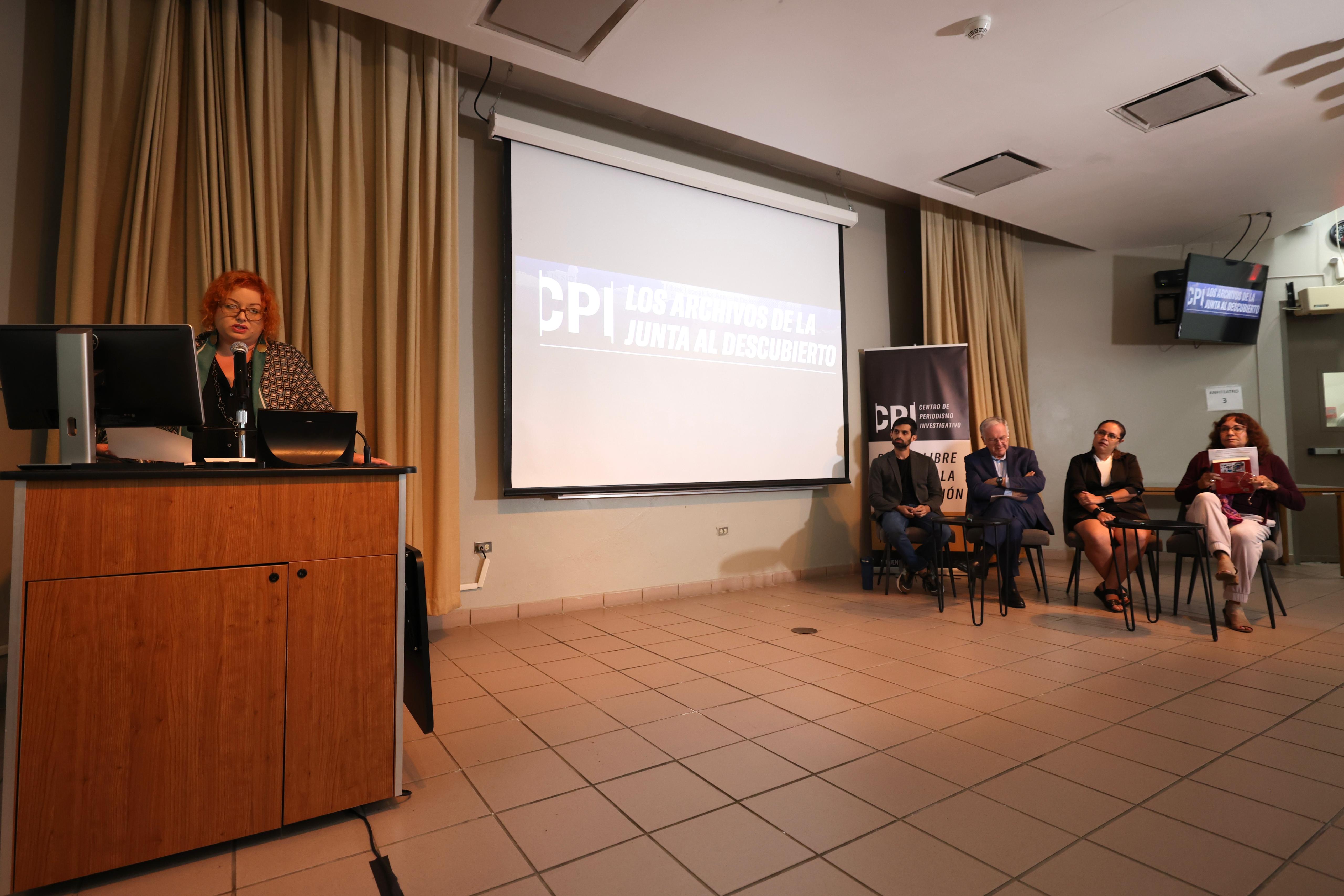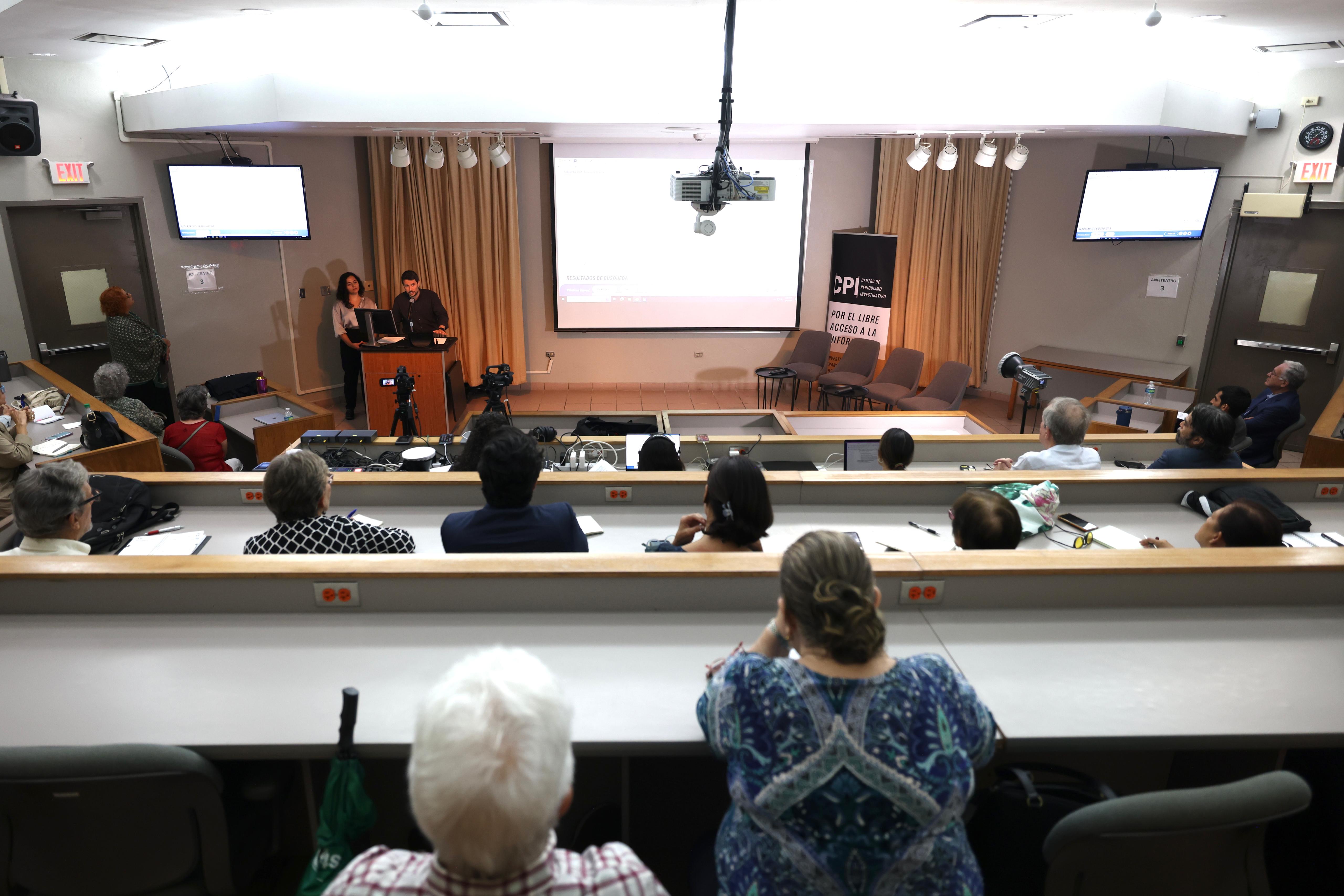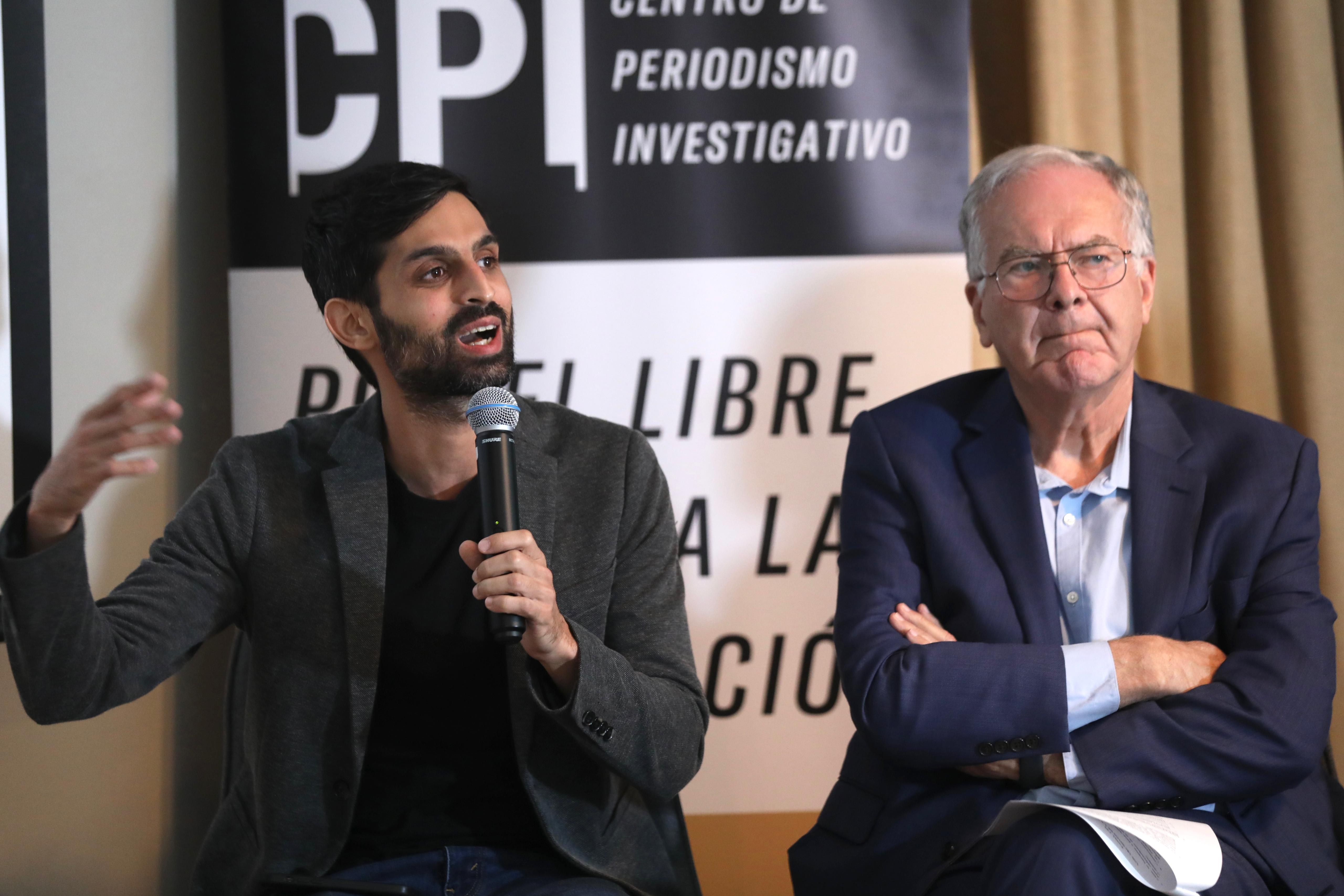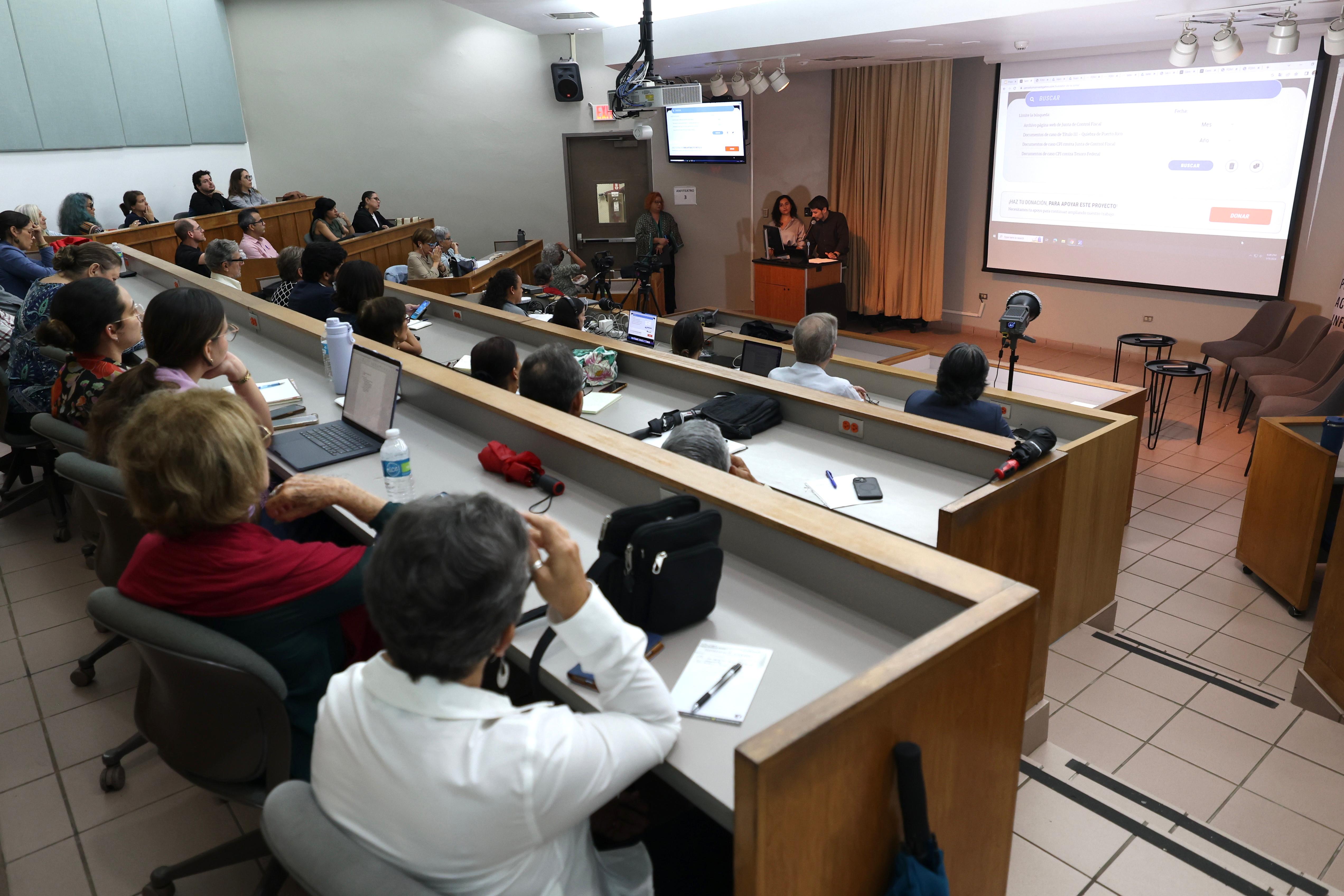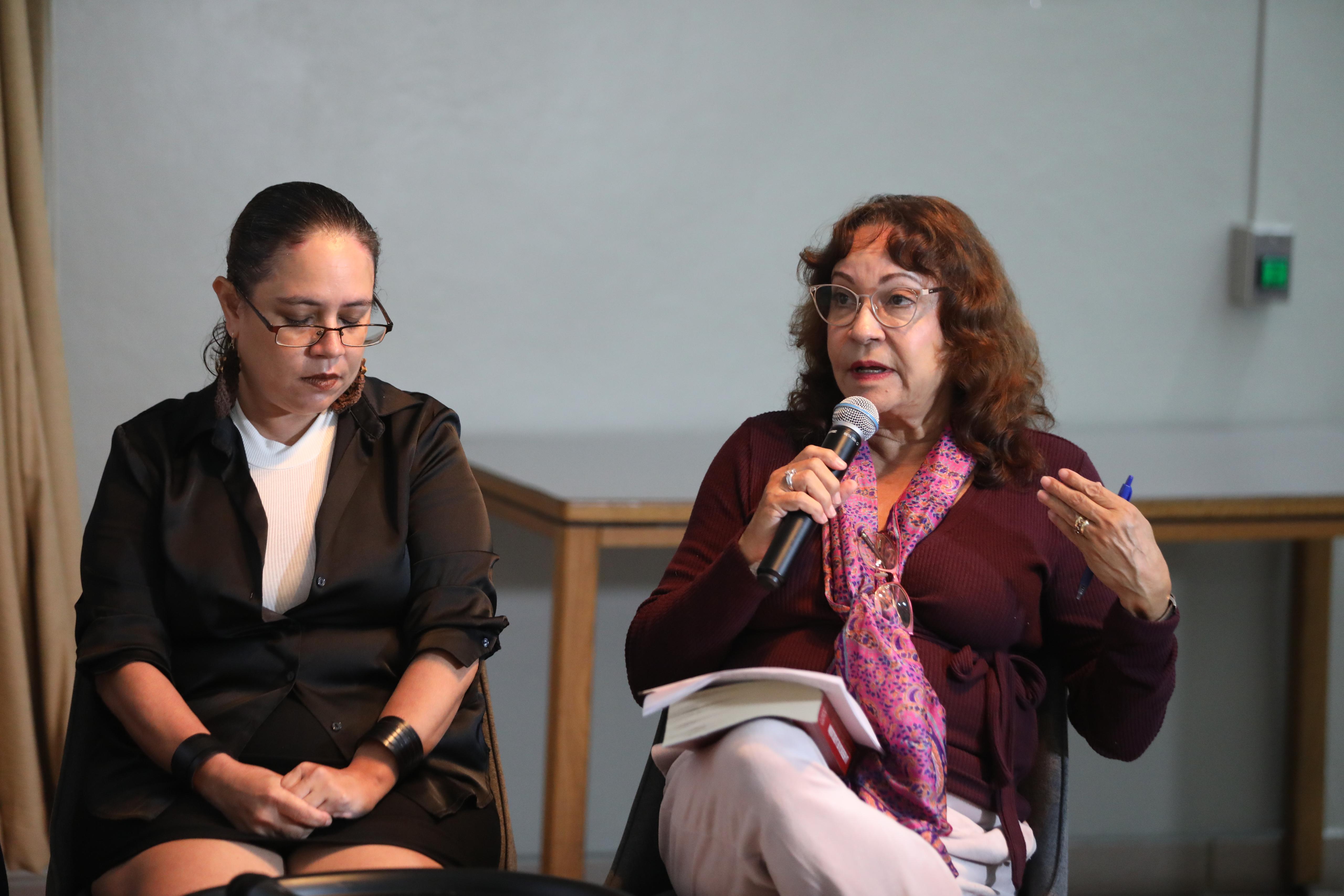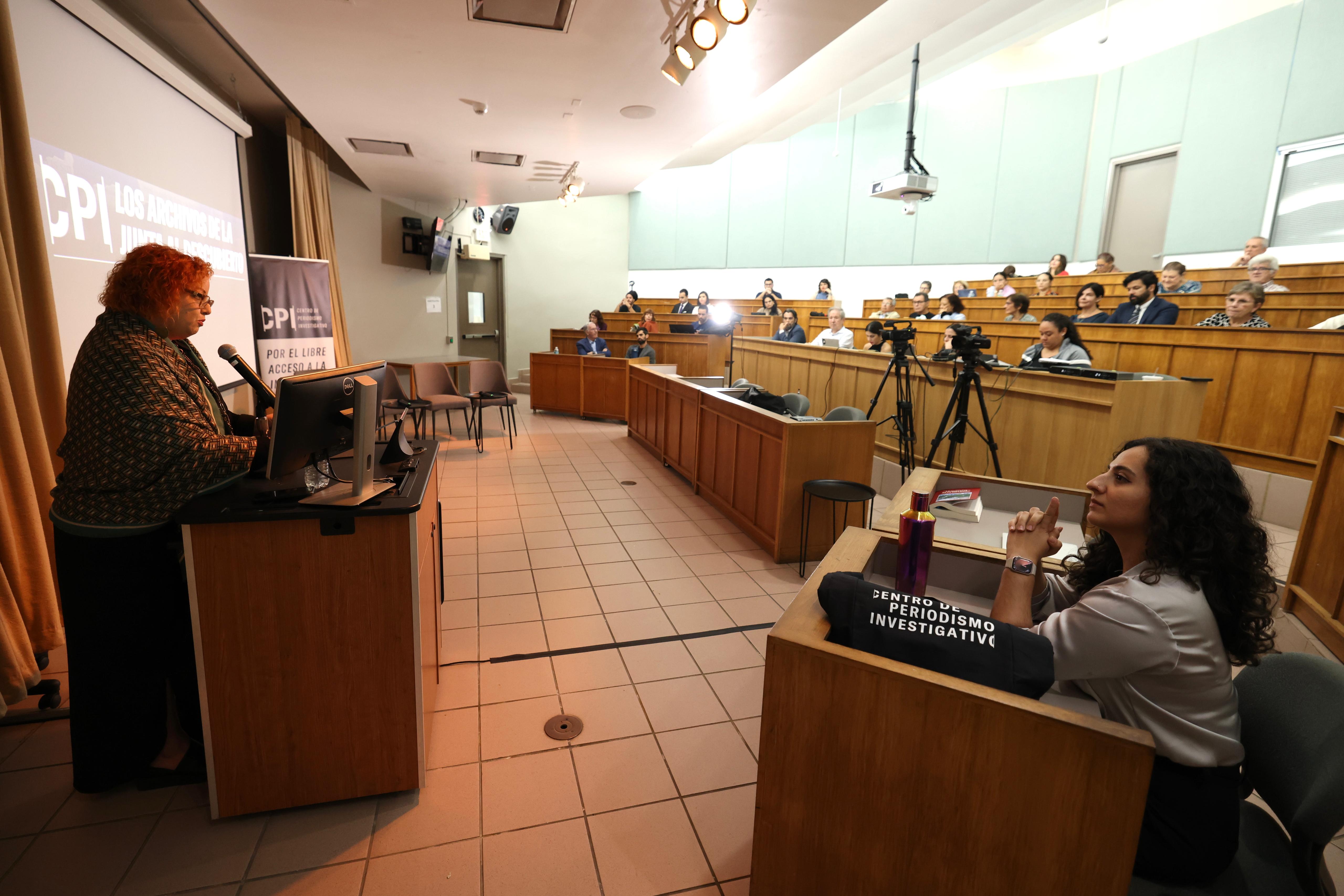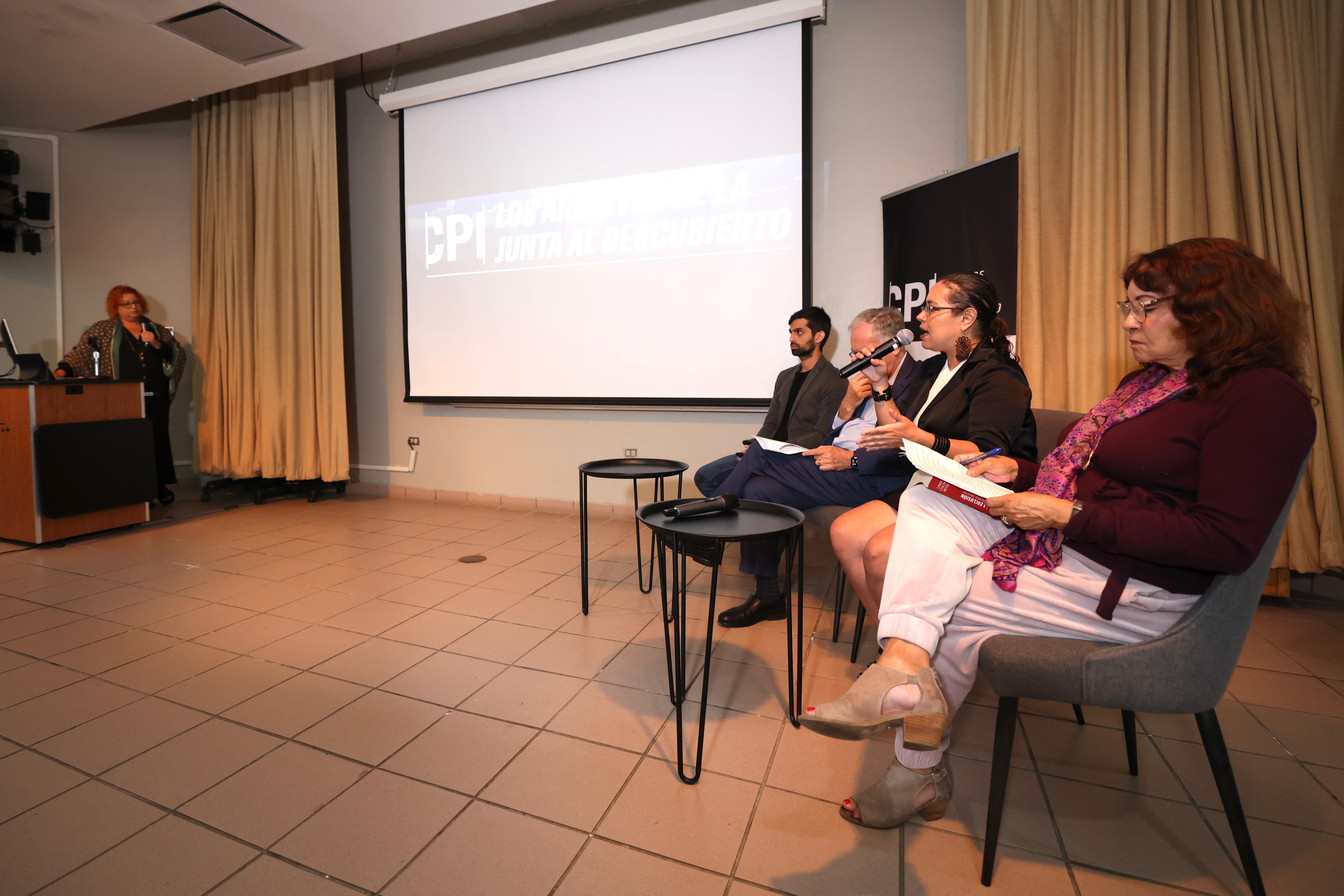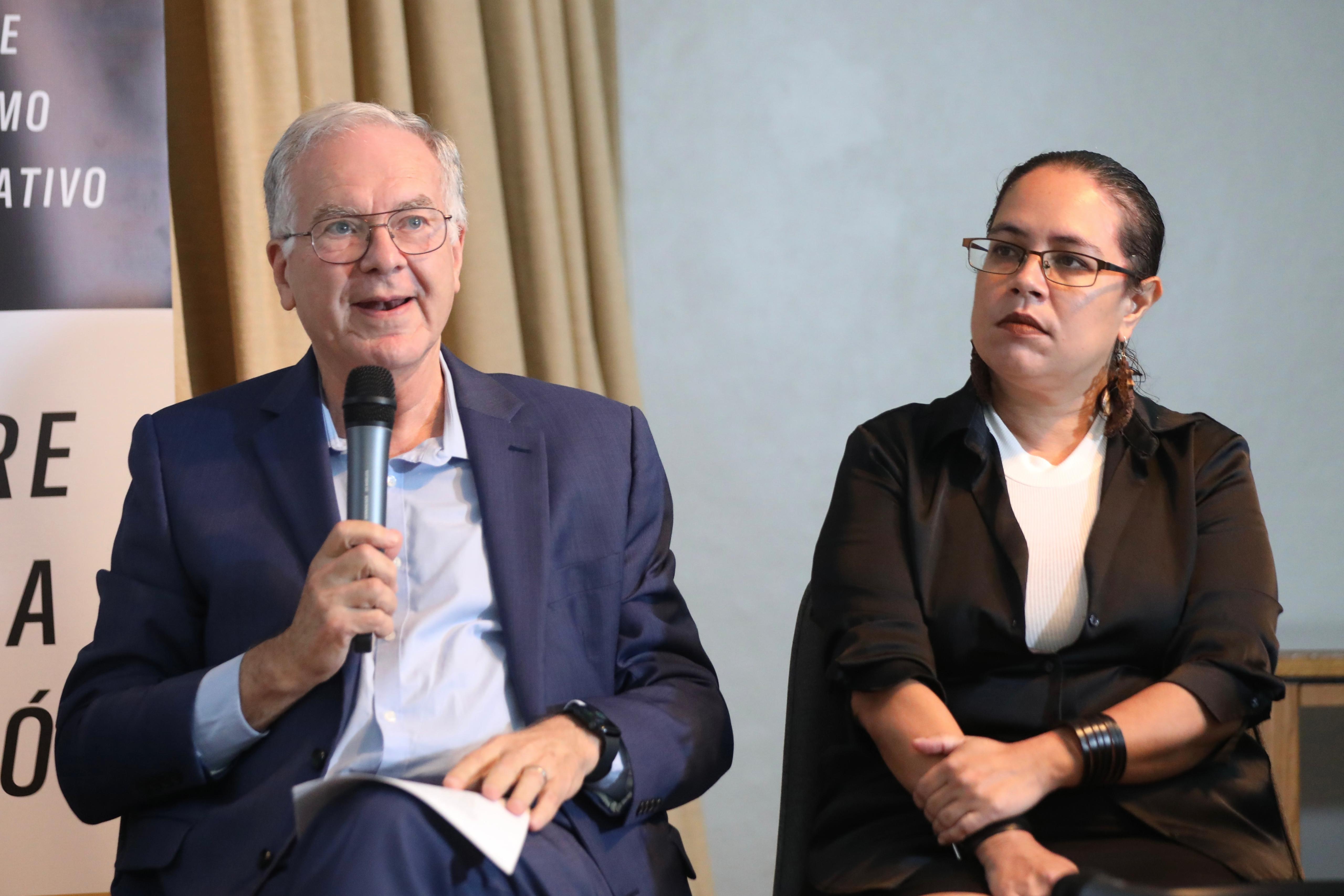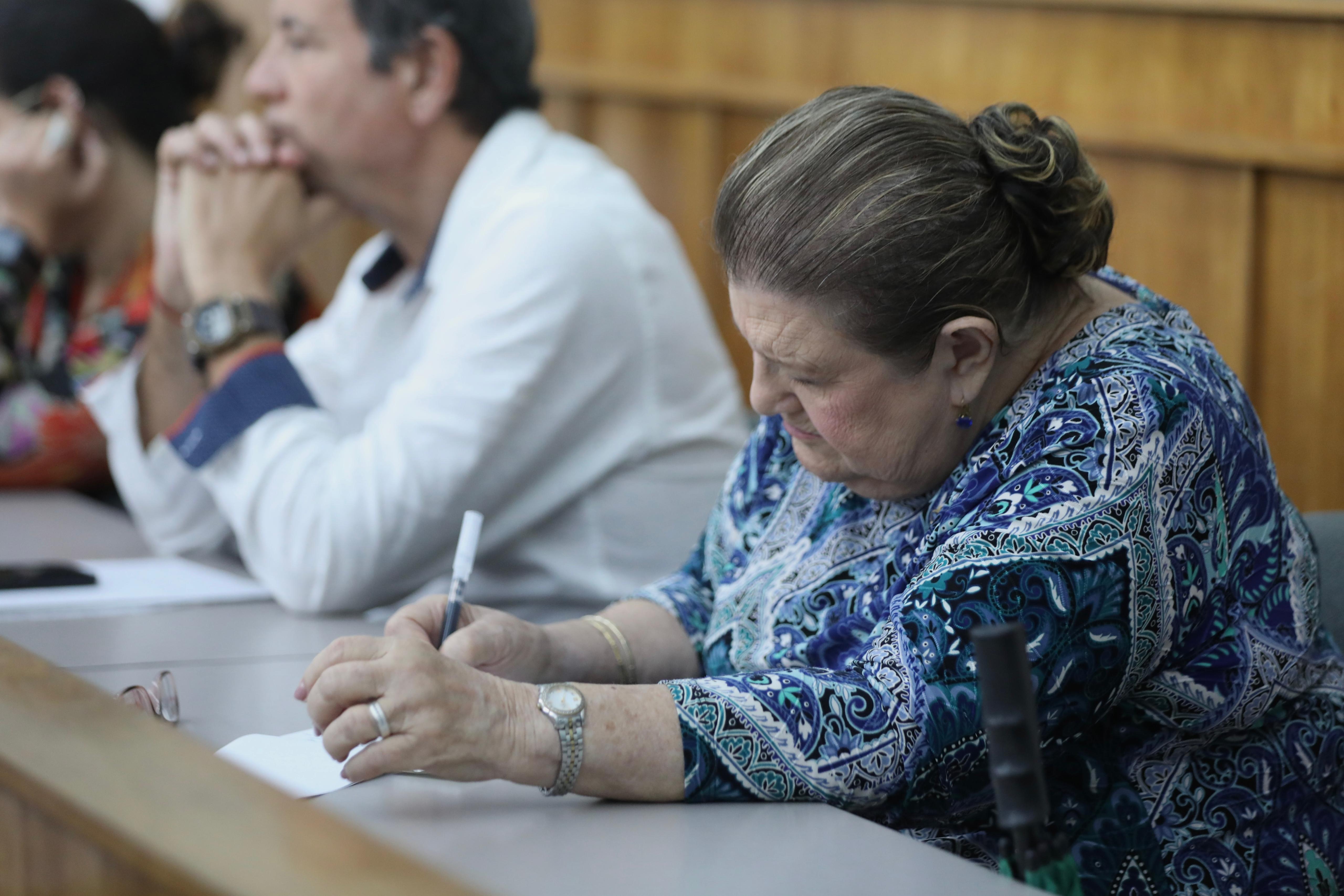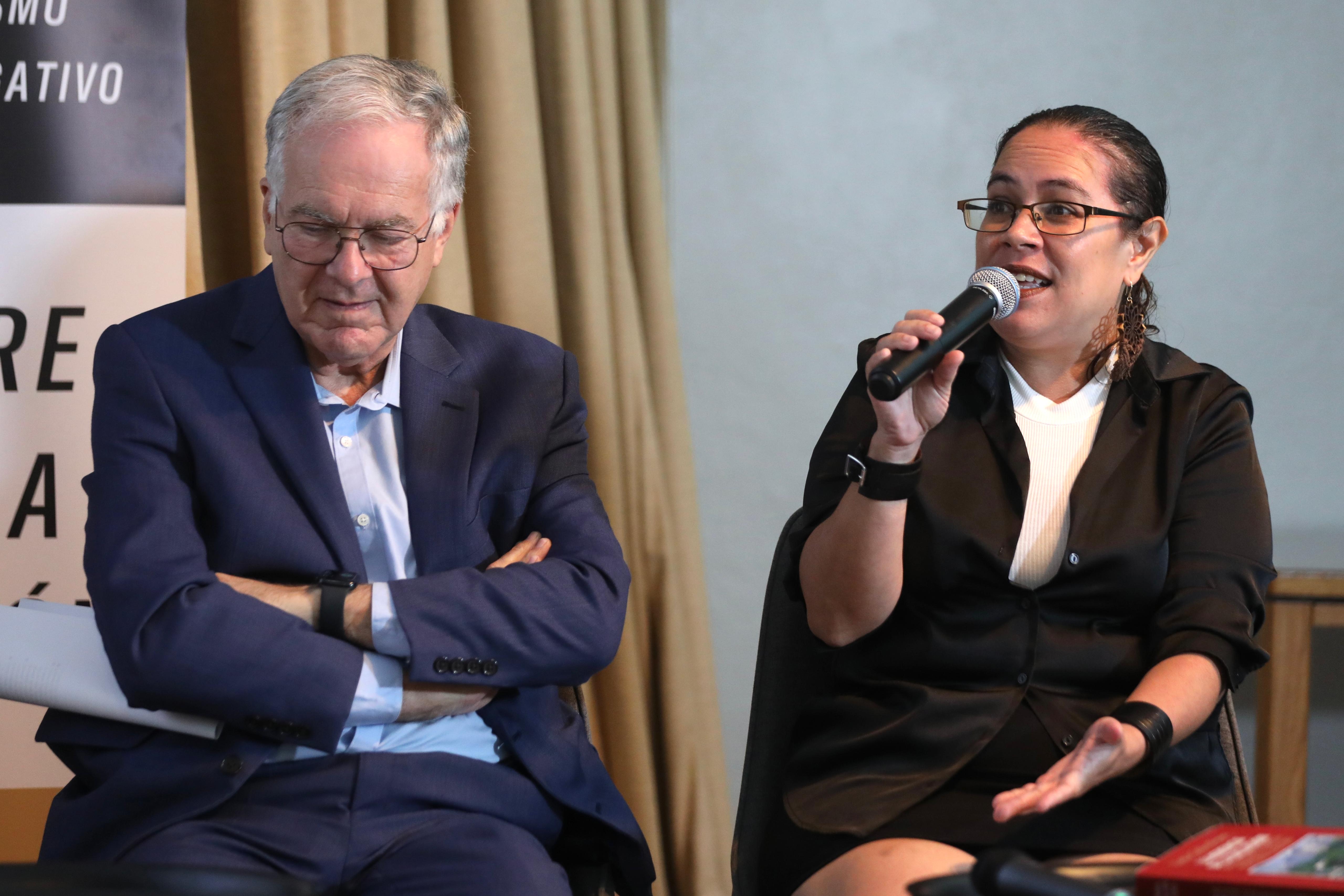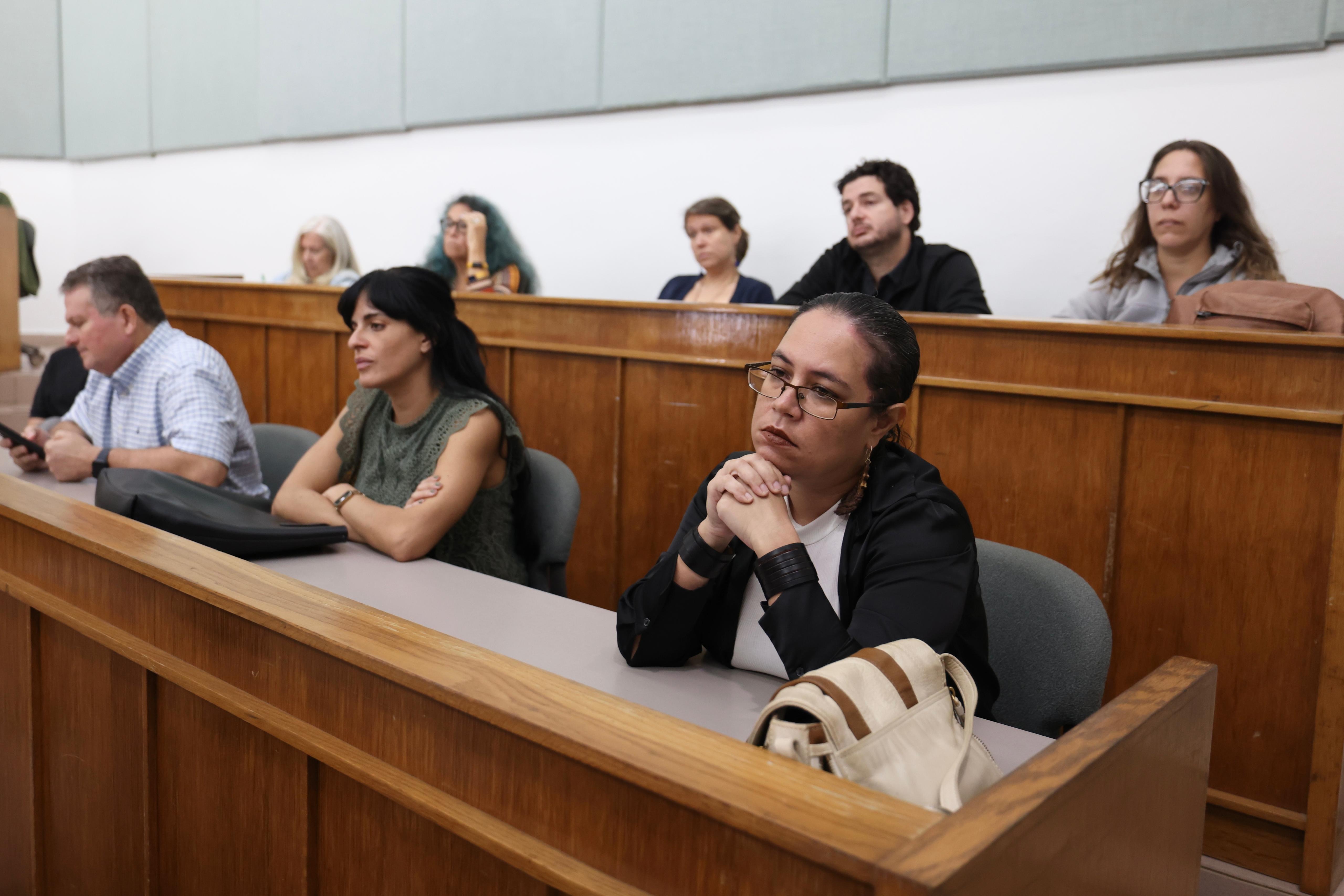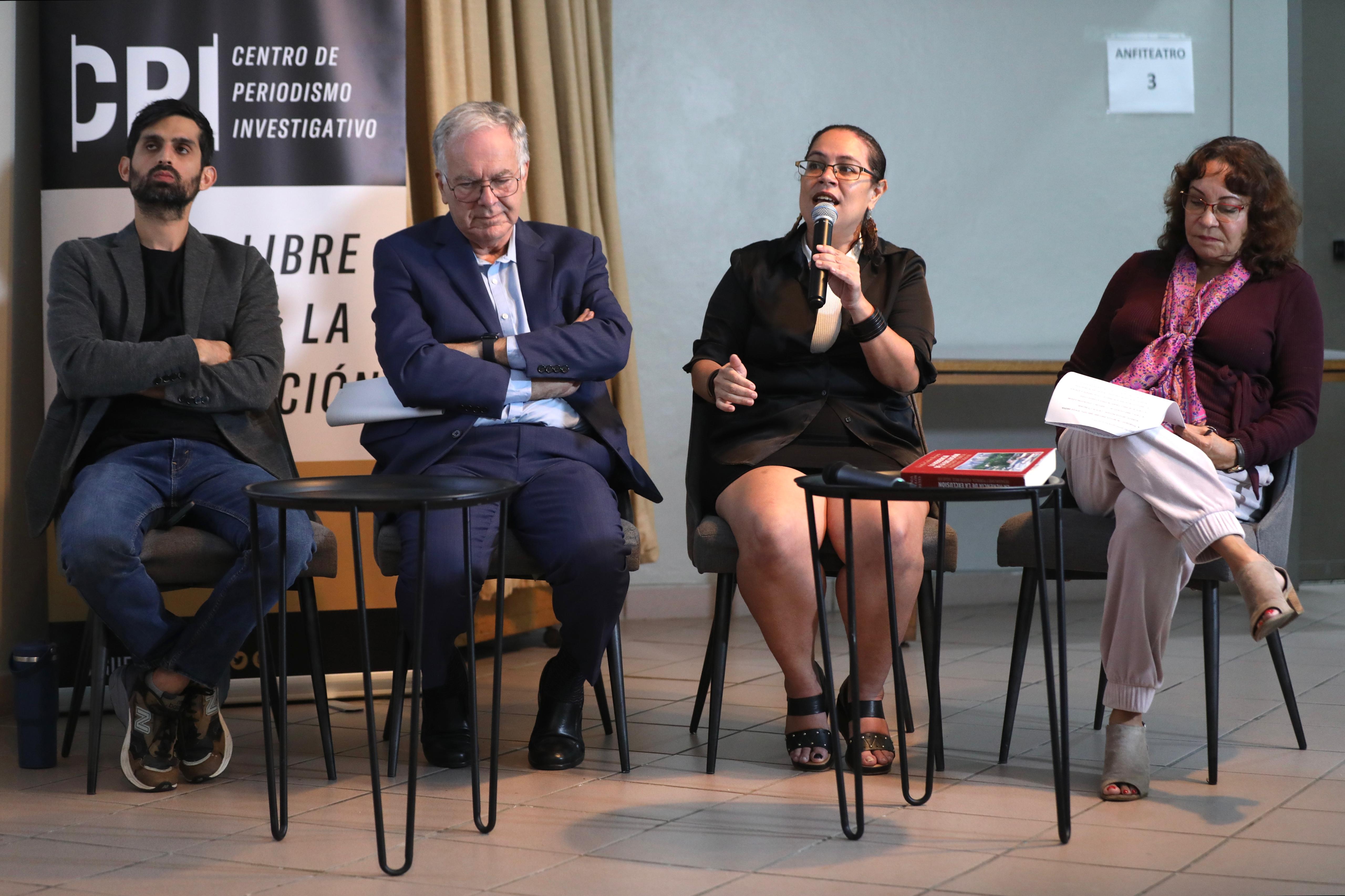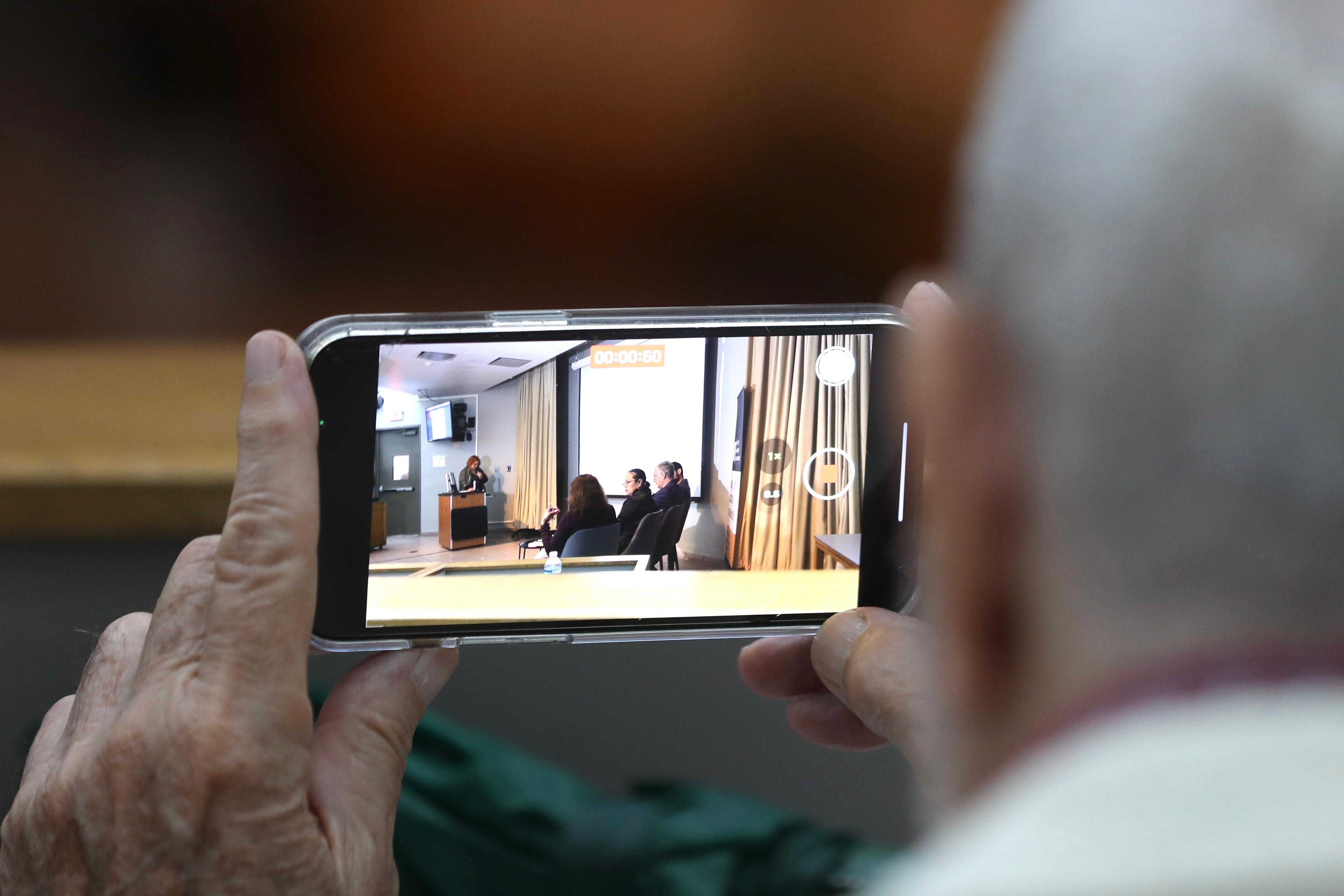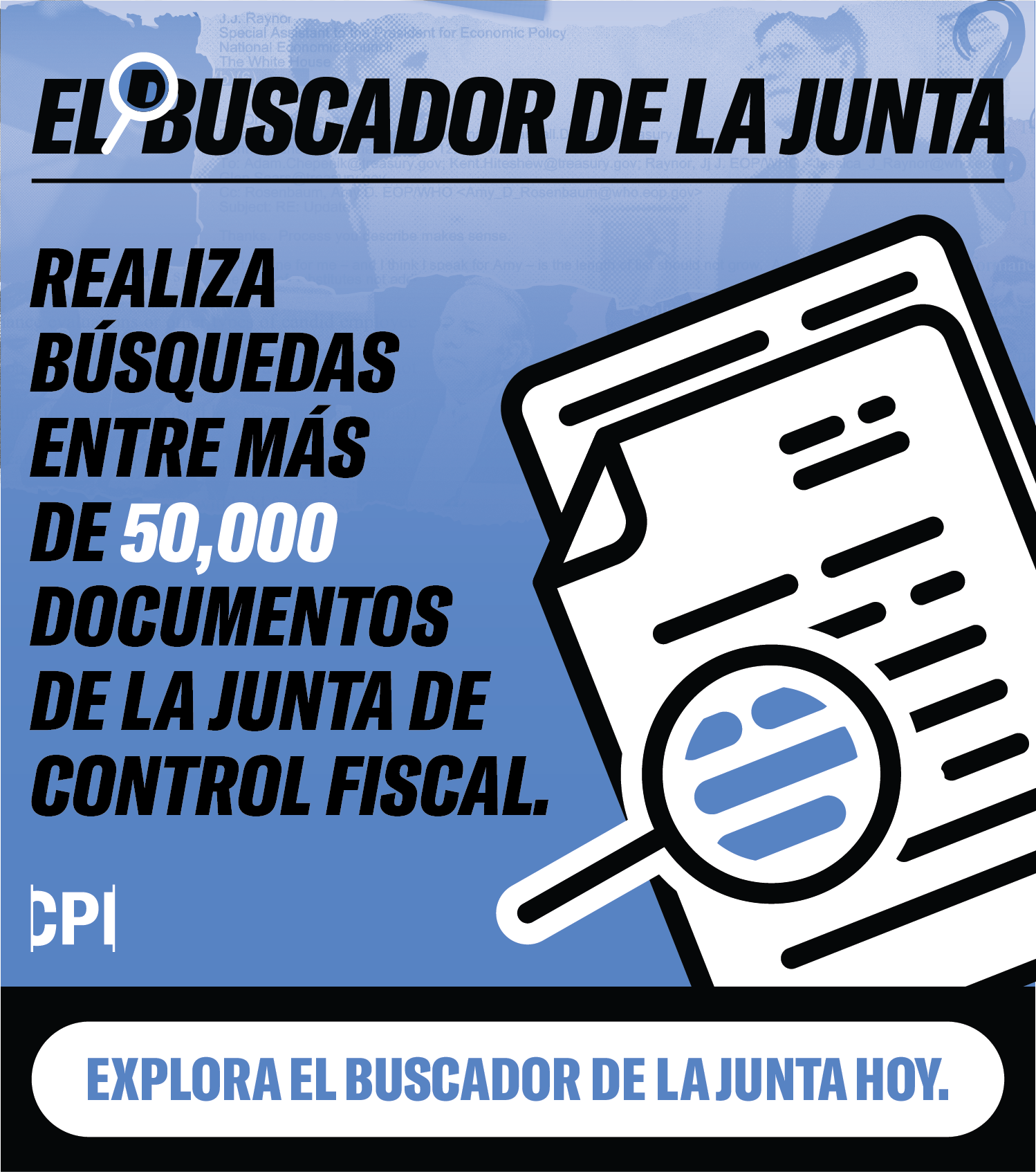San Juan, PR – Several lawsuits and a compelling audit work by the Centro de Periodismo Investigativo (CPI) of the Fiscal Control Board imposed upon Puerto Rico by the federal Government became a new online platform with a vast archive of thousands of documents and communications that are now accessible with a useful search tool.
The CPI presented “El Buscador de la Junta” to provide everyone interested in the Fiscal Control Board’s actions in Puerto Rico with access to more than 50,000 documents and more than 100,000 pages that offer an overview of its work and its relationship with the government.
“El Buscador de la Junta” is created as a response of the CPI to the decision from the U.S. Supreme Court a year ago, which closed the door to the press and citizens to access public information from the Board.
“The launch of this online platform is one of the responses to the Board’s lack of transparency,” said Carla Minet, executive director of the CPI, when unveiling the new digital tool.
After almost six years of litigation at the federal level, the CPI’s lawsuit against the Board was dismissed without evaluating whether the entity created by the U.S. Congress has the immunity it claims to have from CPI requests for access to its information.
“If they thought they were going to cut our momentum to oversee the Board, they were wrong,” said the director of the CPI during the presentation and forum held at the Inter American University of Puerto Rico’s Law School. El Buscador is the product of a year of work to make documents with the tract of the Board’s actions in Puerto Rico easily available, to the extent possible, to the entire press, researchers, people who work with public policy, historians, and anyone.
Julio Fontanet, Dean of the Inter’s Law School, an entity that supports the CPI in all its litigation through its Access to Information Clinic, said during the forum “if there’s something that must have outraged us Puerto Ricans, it is the existence of the Board,” and these documents will serve to continue overseeing that body.
El Buscador is a unique archive that brings together documents, mostly in English, obtained through CPI litigation and several websites. The platform includes all documents on the Board’s website through March 5, 2024. Unlike the Board’s website, El Buscador allows searches by date, by keyword of the document’s title and content, said Carlos Francisco Ramos Hernández, attorney for the CPI Transparency Program.
Another of the files included in El Buscador is the CPI’s case against the Board with all the documents it received as part of the litigation, including emails and documents exchanged with government agencies. There is also a file of the case filed by the CPI, Latino Justice, and the Center for Constitutional Rights against the U.S. Department of the Treasury under the Freedom of Information Act about the Board members’ appointments in 2016, including communications related to the recruitment of the organization’s initial members and the discussion of ethical conflicts and financial interests.
The file with the largest volume of documents, with 29,455, is the bankruptcy case under Title III of he PROMESA Act, presided over by Judge Laura Taylor Swain, from May 2017 to March 5, 2024, including the restructuring plans, reports, and motions presented by the litigating parties. The CPI search engine is more functional than the federal court docket because it allows searching by keyword without having to download the document first.
The organization MuckRock awarded CPI the Gateway Grant to partially fund the creation of this archive and search engine. The files were collected and stored in a cloud on the DocumentCloud platform created by MuckRock. The CPI worked for a year on its classification and organization manually and using artificial intelligence tools, said CPI Transparency Program officer, Lía Sofía Tavárez.
The Board’s Tenure Analyzed
After the tool was unveiled, there was a panel discussion in which Efrén Rivera Ramos, former Dean of the University of Puerto Rico Law School, Linda Colón Reyes, sociologist; Jocelyn Velázquez, activist, and CPI journalist, Luis Valentín, participated.
The PROMESA Act characterizes the Board as an agency within the Government of Puerto Rico, which imposes on it the obligation to act with transparency, given the constitutional right of access to information that is applied in Puerto Rico, said Professor Rivera Ramos.
“Since its inception, the Board has attempted to operate with total obscurity. Even its composition and the criteria that were used, or not used, to appoint members of the Board, remained in the shadows for a long time and litigation had to be resorted to, to shed some light on this matter. We must not forget that its members refused to offer details of their personal finances, something that is required of public officials for obvious reasons,” said the law professor.
“The Board’s determinations have often, most of the time, been made outside the public eye. We found out about the result, and its determinations, but not about its reasons, its considerations, its discussions, and factors that influenced those determinations. And to be able to access those deliberation processes, it was also necessary to litigate,” added Rivera.
The Board’s insistence on withholding information has forced organizations like the CPI to dedicate many resources and time to get the data the island needs to monitor its performance.
“The Board has ironically required transparency from the Government of Puerto Rico; however, it has refused to play by its own rule. It could be said that the Board has been a terrible example of democratic governance,” said Rivera Ramos.
Colón Reyes, author of the book “La herencia de la exclusión,” which addresses the impact on poverty of different public policies, including the imposition of the Fiscal Control Board in Puerto Rico, said “what the Board comes to do is to establish a process that had already been taking place in Puerto Rico since the 1990s with the implementation of neoliberal policies.” She referred to the privatization measures and dismissal of public employees adopted by governors Pedro Rosselló González and Luis Fortuño Burset, which were later confirmed under Ricardo Rosselló Nevárez’s tenure, supported by the Board.
“For all intents and purposes, it’s the Board that governs because it’s the Board that’s deciding; the one that has financial control of the government, the one that decides where to invest or not invest in the island, the one that establishes what the cuts will be. And they’re cuts that, some of them, have been scaled back or minimized because (of the activism of) people out on the streets continually protesting,” said Colón Reyes.
The sociologist and former University of Puerto Rico professor, believes the consequences are not only financial or political but also of the state of mind, how people feel helpless in the situation, protesting, taking cases to court, spending resources, and “wasting time in the search for solutions” about a power that is totally inquisitive, that doesn’t give us space to look for consensual alternatives.”
Activist Jocelyn Velázquez, a member of the activist group Jornada Se Acabaron las Promesas, said she was not surprised to see the documents in black and white that confirm many of the complaints that her organization has made in recent years. She explained that the Jornada’s critical work has evolved from proving that the Board does not fulfill the promise of ending Puerto Rico’s problems, but rather contributes to them, to projecting the entity as a dictatorial one and exposing that its decisions have deteriorated all the services of daily life and make the Puerto Rican people suffer.
Luis Valentín, a CPI journalist focused on overseeing the Board and the bankruptcy process, said the news coverage about that body has declined compared to its first years, even though the entity continues to make daily decisions, and the process of getting information is becoming increasingly complicated.
“It’s in that limbo where there’s no remedy for journalists to be able to request and get that public information even though under Puerto Rico’s rule of law it’s public,” said Valentín, who also studied law. He said the federal judicial decision established a “horrible precedent” because the Board decides what is and is not made public without any remedy to get that information, and with excuses that are not acceptable under the Puerto Rico or US legal systems.
The presentation of El Buscador and the forum are available on the CPI’s Facebook page.



